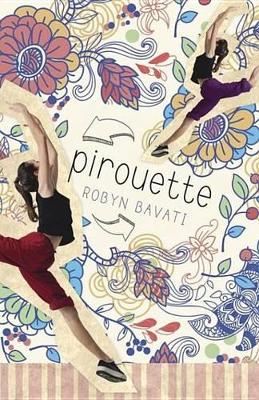Reviewed by Joséphine on
Of course, those who are "90s kids" will scream The Parent Trap! the moment they read the synopsis. Twins who didn't know each other but meet at summer camp? Check. Ok, fine, summer dance school. Same difference here. Said twins who go on to swap lives? Check. On hindsight, Bavati did reference The Parent Trap in the book, so she did acknowledge this for the reader, and so I forgave her for the obvious parallel and read on. And hey! Things like that do happen in real life! So I figured I shouldn't write it off just because it suspiciously reminded me of that movie.
Aside from questioning the originality of the subject matter, the events that unfolded were so sequential and fit together too easily for my liking. In fact, I could probably summarise everything that went down in just a few sentences. Girl meets girl who looks like her. Girls realize they are twins. Twins switch places. Twins fool parents and friends. Twins start dating different guys. Guy B catches Twin A kissing Guy A. Guys A & B feel betrayed, thinking Twin A two-timed them, even though Twin B has been going out with Guy B. Twin A confesses to teacher. They plot with Twin B. At school performance, everyone is invited and twins perform. Parents are in shock. Parents forgive. Twins switch back. Parents are happy. Twins' families become close friends. Twins live happily ever after as sisters. The end.
Given that I pretty much could convey the whole plot in a single paragraph, the question then is, why did I keep reading? I kept reading because Bavati's prose delivered. The prologue and epilogue were beautiful, if fleeting. See, I didn't hate the plot. I was just not surprised by any one of the plot elements. Alas, Bavati knows how to weave together words that touch the heart, and so even though I was certain of what the whole book would be like by the end of the third chapter, or so, I didn't put the book away. What I did find to be of great interest to me though, was the fact that one twin had been raised Catholic, while the other had been raised Jewish. That in itself had to be one of the most difficult things to overcome when switching places.
In the end, I would recommend this book to younger audiences of maybe 13 or 14. If it's any indication, the protagonists are 15 years old themselves, so perhaps their lives, which aren't marred with exceeding difficulty, even if they have reasons for unhappiness, don't need to contain such great complexity. Hence the subject matter doesn't call forth that many surprises. Be that as it may, Pirouette is a lovely book very suitable to younger teenagers who enjoy books about dance, about sisters, or both.
Reading updates
- Started reading
- 31 January, 2014: Finished reading
- 31 January, 2014: Reviewed
